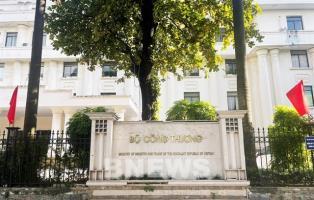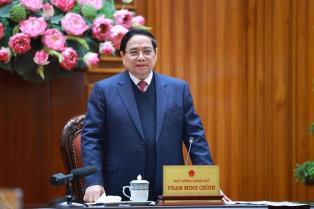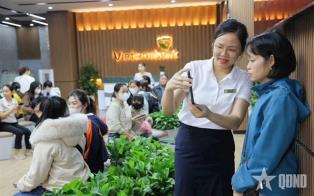Businesses and officials in HCM City called for increased inspections and crackdowns on counterfeit goods to protect consumers and legitimate firms at a conference held in HCM City on July 2 by Người Lao Động newspaper.

HCM CITY — Businesses and officials in HCM City called for increased inspections and crackdowns on counterfeit goods to protect consumers and legitimate firms at a conference held in HCM City on Wednesday by Người Lao Động (Labourer) newspaper.
Nguyễn Thành Nam, deputy director of the domestic market management and development department at the Ministry of Industry and Trade, said the market surveillance agency found 3,114 violations between May 15 and June 15 and seized thousands of counterfeit products carrying fake global brand names such as Hermès, Chanel, Gucci, and Louis Vuitton from fashion shops in Đà Nẵng City, Saigon Square in HCM City and various locations in Hà Nội.
Officials also seized thousands of unlabelled cosmetics and untraceable clothing items from around the country.
According to the ministry, criminals are using increasingly sophisticated methods, making it difficult for consumers to distinguish between real and counterfeit products.
The major types of fakes include fully fake products and knock-offs. Fakes are also rife on e-commerce platforms.
Phạm Khánh Phong Lan, head of the HCM Food Safety Management Board, said inspections are still too procedure-bound and ineffective.
She said scheduled checks give businesses time to evade scrutiny but surprise raids face red tape and require approval after the event, which discourages this method.
She urged supermarkets to act as a filter for fake goods and warned against public tolerance of counterfeit fashion items, which undermine market trust and tax revenue.
Nguyễn Tiến Đạt, deputy head of HCM City’s market surveillance department, said the fight against counterfeits is a long-term challenge, requiring consistent enforcement and close coordination among authorities.
Offenders often exploit legal loopholes, split shipments and hide identities, and some even pay influencers to advertise their products.
Fake anti-counterfeit labels are now used to deceive consumers, and so verifying evidence of violations often requires complex and time-consuming procedures.
Other common tricks include mixing genuine and fake products or using high-quality samples to obtain certification before mass-producing inferior goods.
Legal enforcement faces challenges due to gaps in the system and the rapid growth of online trade.
Đàm Vân, deputy head of the management board of Nguyễn Tri Phương Market in Diên Hồng Ward, said the market team sees itself as the first line of defence in protecting shoppers and the reputation of traditional markets.
They work closely with local authorities to check where products come from and regularly remind sellers to follow the rules.
They are also promoting the use of technology to improve management efficiency.
Lương Trọng Khoa, founder of Vinapanax, said that 90 per cent of online search results for “Ngọc Linh ginseng” are fake.
Current rules only check saponin levels, which are not unique to the ginseng, allowing sellers to mix in other roots.
Some producers now use DNA testing to prove authenticity.
Nguyễn Viết Hồng, deputy chairman of the HCM City Consumer Protection Association, said that beyond cracking down on counterfeit goods, it is also essential to promote legitimate businesses so that consumers know where to find genuine products.
Other businesses told the discussion panel that they support authorities’ fight against counterfeit products to protect legitimate businesses and consumers.
Some said they had invested in anti-counterfeit packaging and QR-coded labels.
They called for establishing an interdisciplinary inspection council to conduct surprise checks when violations are suspected to create a safer and fairer market for law-abiding enterprises.
In the second half of 2025, local trade departments and market surveillance teams will strengthen inspections, cracking down on openly sold counterfeits, untraceable goods and intellectual property right violations.
Authorities also plan to expand the use of technology and share databases to prevent and promptly tackle violations.
Public awareness campaigns will target small businesses and online sellers.
Consumers are advised to buy from reputable sellers and report suspected counterfeits to market surveillance forces. — VNS




